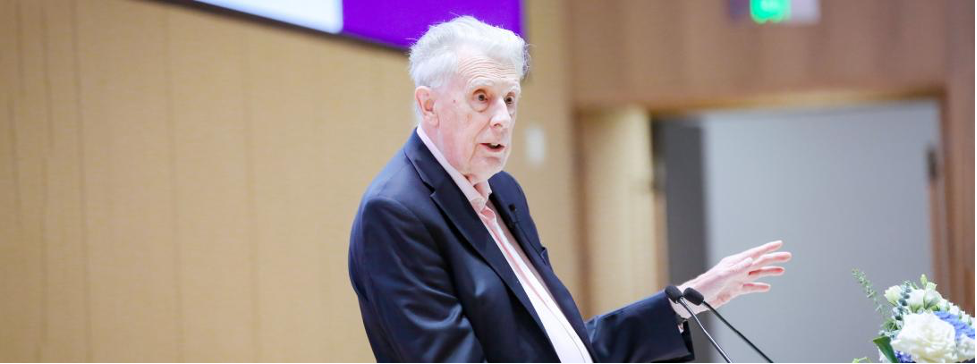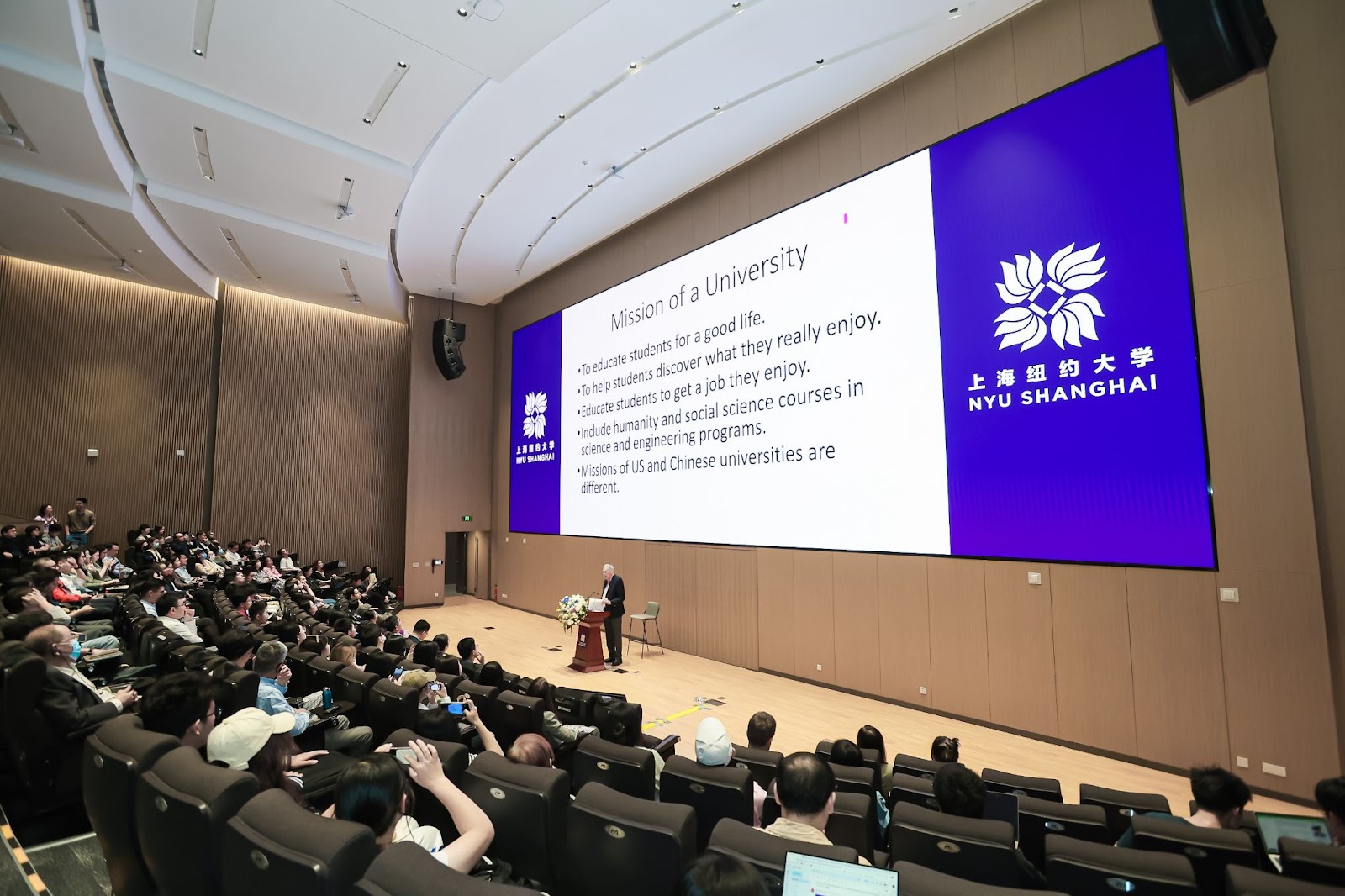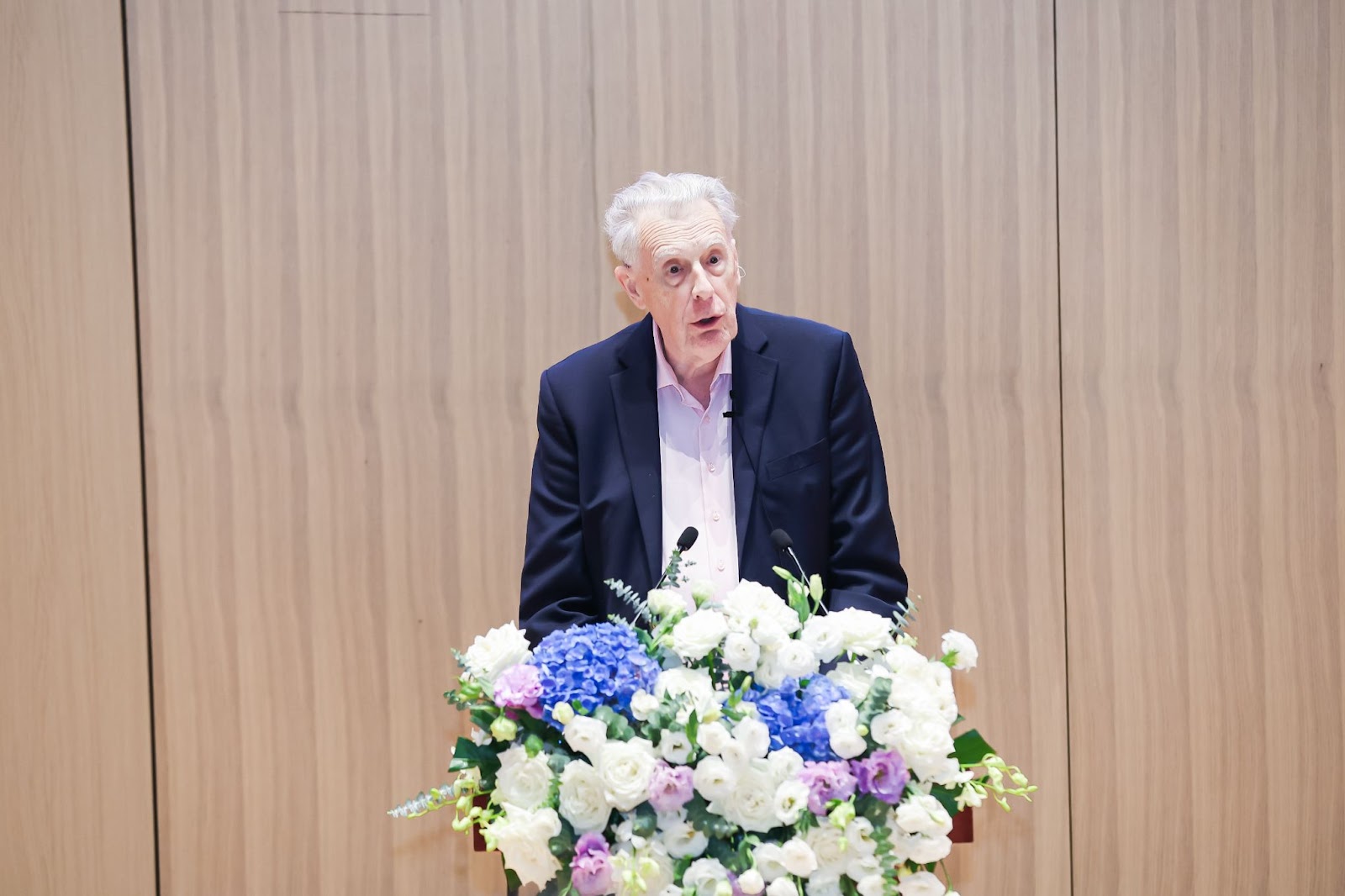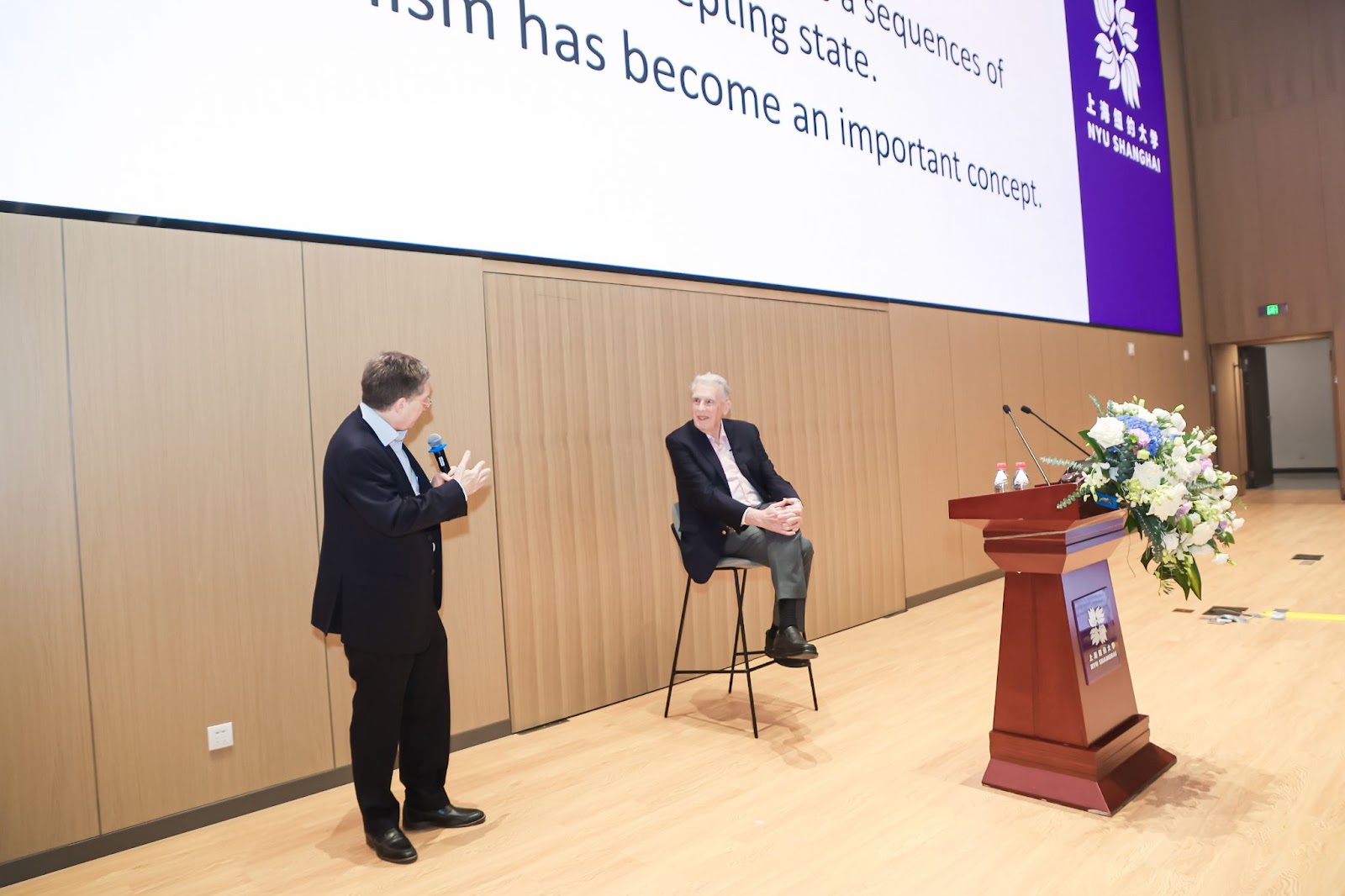You are here
Turing Award Winner John Hopcroft Speaks at NYU Shanghai: In the Information Age, Talent is Gold

“In this age of the information revolution, talents will be key resources, similar to how oil, gold, or agriculture were vital for nations in the past. Nations that invest in education and prioritize it will become important nations," said world-renowned computer scientist and Turing Award winner John Hopcroft in a talk before a packed NYU Shanghai auditorium on Oct 25.
Professor Emeritus in Computer Science at Cornell University, Hopcroft is considered one of the most important theoretical computer scientists in history. He is a member of the US National Academy of Sciences, the National Academy of Engineering, is a fellow of the American Academy of Arts and Sciences, and has also been named as a foreign member of the Chinese Academy of Sciences. In 1986, he was awarded the A. M. Turing Award for his research contributions.

John Hopcroft speaking to a packed auditorium at NYU Shanghai
Addressing a standing-room-only audience of 600 students, faculty, and education enthusiasts at NYU Shanghai, Hopcroft delivered a comprehensive lecture on the mission of a university, in which he compared higher education in the US and China, discussed China's efforts to improve undergraduate education, and explored the development of computer science over the past 50 years.
Sponsored by the Green Court Foundation, established by Green Court Capital Management, Hopcroft's talk marked the launch of NYU Shanghai’s Green Court Distinguished Lecture Series. This annual lecture will feature distinguished thinkers who will share their expertise with the university. Vice Chancellor Jeffrey Lehman and the representative from Green Court Capital Management Mr. Yao, delivered welcome remarks at the event.

With over 50 years of experience as an educator, Hopcroft said he believes that the real mission of a university is to educate students to have a good life. “It's important to discover what students really enjoy, so we can help them prepare for a good life,” he said.
He also stressed the importance of passion when discovering one's interests. “Many individuals have asked me what my strategy was that led to receiving the Turing Award,” he said “I realized I had no formal strategy. I just pursued what I found interesting and exciting.” He added that this pursuit of one’s interests is a common trait of many Turing Award and Nobel Prize recipients. “If an opportunity to do something exciting came along, they embraced it,” he said. “Otherwise, they ignored it.”
Having worked in higher education in the US and collaborated with Chinese universities over the years, Hopcroft made some general comparisons to highlight the apparent contradictions in the missions of the two countries’ university systems.
“The United States has already generated a sufficient number of scientists and engineers to meet the nation's needs. US universities do not engage in applied research, as this is primarily conducted within national laboratories or corporate research divisions,” he explained. “In contrast, China has not yet produced an adequate supply of engineering and scientific talent to meet the nation's needs. This situation has led to the dual missions of Chinese universities: educating the next generation of talent and assisting the government and industries with applied research.”
Before fielding questions from the audience, Hopcroft briefly discussed the evolution of computer science in the past 50 years and future directions of the field. During the Q&A, he addressed a wide range of topics, from his favorite algorithms to leveraging AI to enhance education.

Vice Chancellor Jeffrey Lehman moderating the Q&A session with John Hopcroft
Hopcroft concluded by offering his thoughts on “the unknown areas in the world”. “While physical and mathematical sciences may have pushed their boundaries,” he said, “other fields like sociology may still hold fundamental questions. For instance, many countries are experiencing declining populations, challenging our growth-based economies.” He encouraged the audience to look beyond the physical and mathematical sciences, where a lot of questions remained unsolved.
_____________________________________________
Click here to watch Professor Hopcroft’s talk.
Click here to view Professor Hopcroft’s talk slides.


